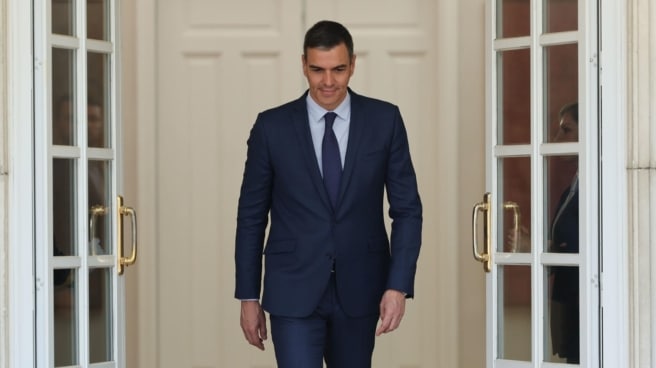

Pedro Sanchez in Moncloa.
If Telefonica is a strategic company for Spain, Naturgy He should treat government with the same consideration.
If a telecommunications company is involved in activities as sensitive from a defense point of view as cybersecurity or networks over which encrypted messages circulate, 24% of the primary energy consumed in Spain (gas) depends on the energy company.
If the purchase of a 10% stake in Telefónica by Saudi Arabian STC led the government to counteract that percentage with the acquisition of a similar stake by Sepi (with an investment of about $2 billion), then the same reasoning should lead to the public sector being absorbed into Naturgy. if the sale of 40% of its capital to Emirati giant ADNOC is closed.
The government, as announced today Carlos R. Cozar And Olga Rodriguez V Independent, consistent with this reasoning, advocates following the same pattern as in Telefónica and for this purpose is looking for a way to enter Naturgy. Both the Ministry of Economy and the Ministry of Economy were already aware of the conversations between Criterion (the largest shareholder of the gas company with a share of 26.7%) and the oil company, whose director is the Sultan Ahmed Al Jaberwas responsible for hosting COP 28 last December in Abu Dhabi.
The funds that would, in principle, be willing to sell would be CVC (20.7%) and GIP (20.6%), which would force ADNOC to bid for a 100% takeover. It would be logical for the entry of this and Sepi (if chosen by the government, as in the case of Telefónica) to be carried out by common consent.
After entering Telefónica, the government is considering participation in Naturgy. Given the president’s penchant for controlling all institutions, these steps are hardly encouraging.
If the public stake was similar to that purchased in Telefónica, the state would have to allocate another $2 billion to acquire 10% of Naturgy. That is, the government will have to issue more public debt than already planned, thereby increasing its current level, which has caused alarm among various institutions. In his Financial Stability Report 2024For example, the Bank of Spain has highlighted the rise in public debt in the medium to long term and warns that the debt-to-GDP ratio will reach 120% in 2040 if action is not taken.
This does not appear to concern the Prime Minister, who acts as if he has an absolute majority, although his position in the chambers is the weakest in our democracy.
The president is not alone in his desire to control large companies. Minister of Ecological Transition and next head of the PSOE list in the European elections, Teresa Ribera, is an ardent advocate of economic counter-reform, which consists of concentrating companies that can be considered important under the auspices of the state. Ribera was considering cooperation with Naturgy as the company raised the possibility of a spin-off. The difference is that there is now a precedent (Telefonica) and that the majority shareholder (Criteria) will be positive about going public.
Both Telefónica and Naturgy have been subject to the vagaries of the market for many years. The desire of a foreign shareholder (investment fund) to enter a company is as logical as the desire to sell it for a capital gain. This is how capitalism works. The government has mechanisms (such as the “golden share,” which allows it to intervene in key decisions) to prevent companies it deems vital to the functioning of the economy or national security from becoming dependent on unwanted owners.
What is happening now is alarming. Not only because the government is dangerously increasing the amount of debt (which, logically, will have to be repaid with interest), but also because it demonstrates an undisguised desire to take over companies that have more resources and are well managed.
The great argument for privatization of the public sector since the 1980s was precisely the introduction of performance criteria in companies that had existed since the Frank in autarky mode. These companies, dependent on the National Institute of Industry (INI), were uncompetitive and became a refuge for friends and politicians on the reservation. Privatization policy was initiated Felipe Gonzalez and continued later Jose Maria Aznar.
Yeah Pedro Sanchez If he had behaved like a ruler who respected institutions, this move to buy private companies would not have raised suspicions. But, knowing about their inclination to directly dominate RTVE from the Prosecutor General’s Office (case Broncano is a paradigm), I am very afraid that the argument used to enter Telefónica and Naturgy is just an excuse to expand its mantle of power in society.
Source: El Independiente